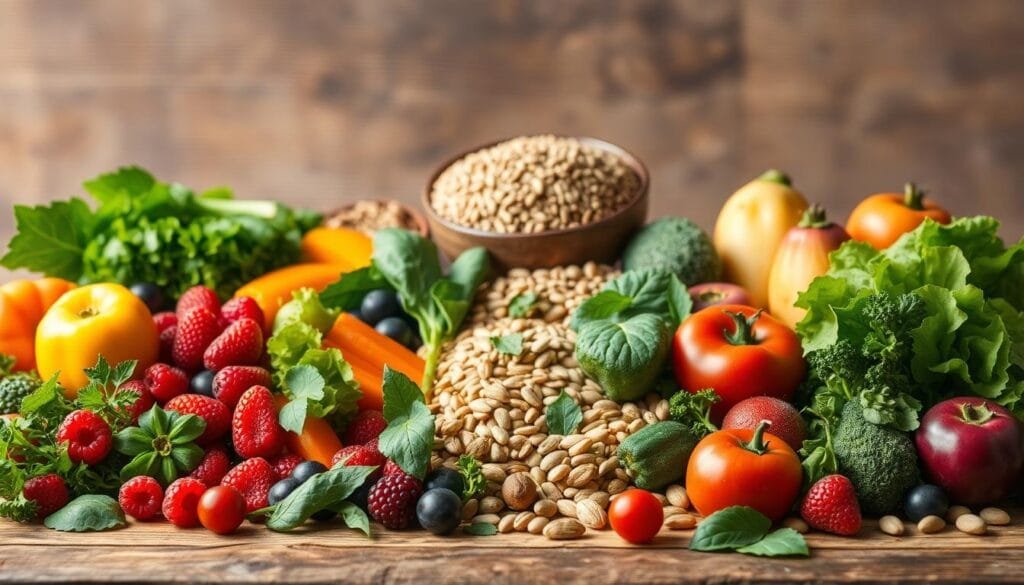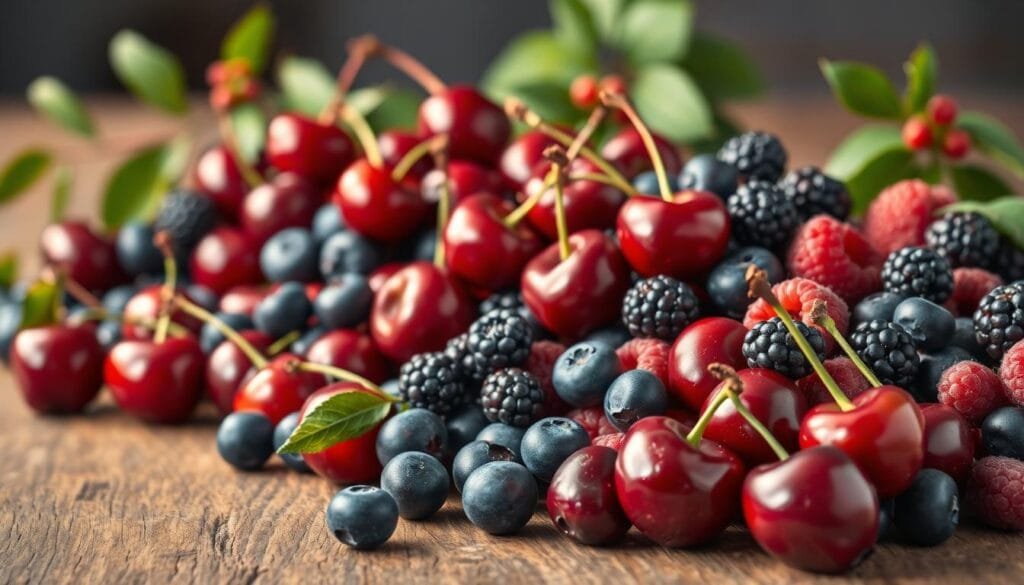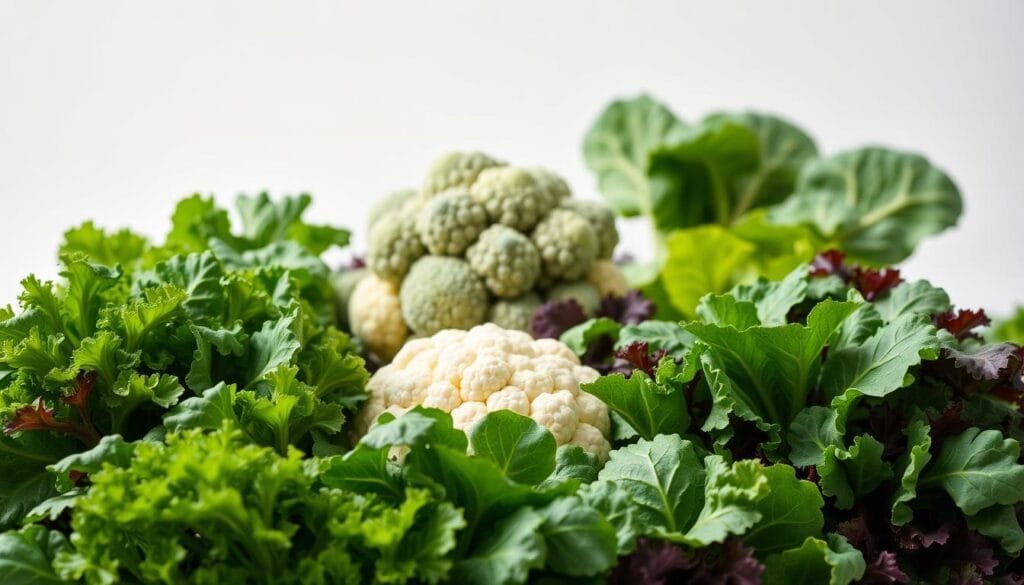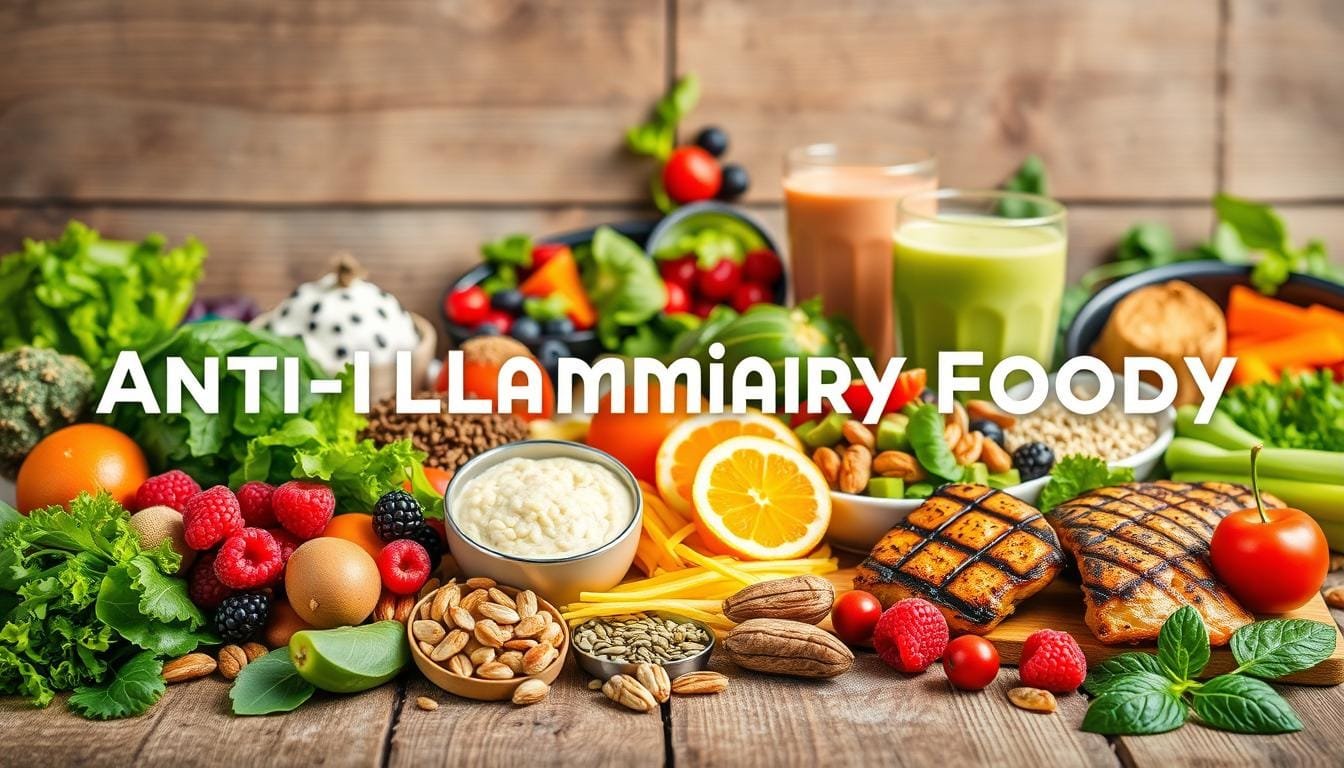Imagine waking up feeling full of energy, without pain, and ready to go. This isn’t just a dream. It’s possible with the right foods. Chronic inflammation affects millions, but you can fight it with the right diet.
Your body is amazing at protecting itself. By eating foods that fight inflammation, you give it a strong defense. Every meal can help heal and prevent serious diseases like heart disease and diabetes.
We’ll look at foods backed by science that boost your health. Your diet is more than just calories. It’s about keeping your cells healthy, boosting your immune system, and living longer.
Key Takeaways
- Nutrition plays a critical role in managing inflammation
- Certain foods can actively reduce inflammatory markers
- Diet modifications can help prevent chronic diseases
- Anti-inflammatory eating is accessible and delicious
- Small dietary changes can lead to significant health improvements
Understanding Chronic Inflammation and Its Impact on Health
Chronic inflammation is a silent threat to your health. It can harm your body’s defenses. Unlike acute inflammation, which is good for healing, chronic inflammation is bad and lasts long.

Your body’s inflammation helps heal and protect. But, if it gets too much, it can cause serious health problems. Chronic inflammation is linked to many health issues that affect millions in the U.S.
Acute vs. Chronic Inflammation: What’s the Difference?
- Acute inflammation: Short-term response lasting hours to days
- Chronic inflammation: Prolonged state lasting months or years
- Acute inflammation helps healing; chronic inflammation causes damage
Health Conditions Connected to Chronic Inflammation
Eating right can help manage risks of many health problems:
- Cardiovascular diseases
- Autoimmune disorders
- Type 2 diabetes
- Certain cancers
- Neurodegenerative conditions
“Your diet plays a key role in managing chronic inflammation and keeping you healthy.” – Nutrition Experts
Diet’s Role in Controlling Inflammation
Your diet can fight chronic inflammation. Natural ways to reduce inflammation start with what you eat. Eating whole foods, rich in nutrients and low in processed stuff, helps fight inflammation.
To fight inflammation, cut down on sugar, avoid processed meats, and eat foods that fight inflammation. The American Heart Association says women should eat no more than 25 grams of added sugar a day. Men should limit it to 36 grams.
Easy Anti-Inflammatory Foods to Add to Your Diet

Changing your diet to fight inflammation is easy. A whole food plant-based diet is a great way to reduce chronic inflammation. It boosts your overall health. The trick is to choose foods that naturally fight inflammation in your body.
Here are some simple foods that fight inflammation you can easily add to your meals:
- Colorful vegetables like spinach, kale, and bell peppers
- Fresh fruits including berries, oranges, and apples
- Nuts such as almonds and walnuts
- Legumes like chickpeas and lentils
- Whole grains including quinoa and brown rice
When building an anti-inflammatory diet, focus on variety and color. Aim to include at least 3-5 different plant-based foods in each meal. Your body will thank you for the essential nutrients that help reduce inflammation naturally.
Small dietary changes can lead to significant improvements in your body’s inflammatory response.
By adopting a plant-based anti-inflammatory diet, you’re not just eating—you’re healing. Each meal becomes a chance to support your immune system and protect against chronic diseases.
Power-Packed Berries and Cherries: Nature’s Anti-Inflammatory Gems
Berries and cherries are top anti-inflammatory foods that can change your diet for the better. These small fruits are full of nutrients that help your body fight inflammation.

Nature has given us amazing berries as natural remedies for inflammation. These fruits are full of compounds that boost your health.
Benefits of Anthocyanins and Antioxidants
Berries are amazing anti-inflammatory foods with great health benefits. Here are some key points:
- Blueberries have anthocyanins that may lower heart disease risk
- Goji berries have all essential amino acids
- Elderberries help fight colds and flu
- Dried cherries have melatonin for better sleep
Creative Ways to Include Berries in Your Diet
Adding these fruits to your meals is tasty and simple. Here are some ideas:
- Blend berries into morning smoothies
- Sprinkle dried berries on salads
- Use as natural yogurt toppings
- Bake them into healthy breakfast muffins
Tart Cherry Benefits for Joint Health
Tart cherries are a great natural remedy for inflammation, good for joint health. They have powerful polyphenols that reduce oxidative stress and help muscles recover.
Try to eat 1/4 to 1/2 cup of dried berries every day. Adding these nutritional gems to your diet is a tasty way to fight chronic inflammation.
Leafy Greens and Cruciferous Vegetables for Fighting Inflammation

Adding leafy greens and cruciferous vegetables to your diet can greatly help with chronic inflammation. These foods are full of nutrients and can boost your health from the inside out.
Leafy greens like kale, spinach, and Swiss chard are loaded with antioxidants. Studies show they may lower the risk of chronic diseases. Kale, for example, has compounds that help fight cancer and protect your eyes.
- Spinach: Rich in vitamins and anti-inflammatory compounds
- Swiss chard: Contains potent antioxidant properties
- Kale: Supports cancer prevention and eye health
Cruciferous veggies like broccoli, cauliflower, and Brussels sprouts are also great for fighting inflammation. They have been shown to lower inflammatory markers in the blood. By cutting down on inflammatory foods and adding these veggies, you help your body heal naturally.
Tip: Lightly steaming or roasting these vegetables helps preserve their nutritional value while making them more delicious.
To get the most out of these veggies, pair them with olive oil or add nuts. This combo boosts nutrient absorption and adds more anti-inflammatory benefits.
- Broccoli: Supports cellular health and reduces inflammation
- Cauliflower: Low-calorie, high-nutrient vegetable
- Brussels sprouts: Packed with antioxidants
Your body will appreciate the addition of these veggies to your diet. Start small and gradually increase your intake for the best results.
Omega-3 Rich Fish and Healthy Fats
Learning about omega-3 fatty acids can change how you fight inflammation. These nutrients help your body heal and lower inflammation.
The American Heart Association says eat fatty fish twice a week. This boosts your fight against inflammation. Wild-caught salmon, sardines, and mackerel are the best for this.
Best Fish Sources for Anti-Inflammatory Benefits
Choose these fish for their omega-3 power:
- Salmon: Provides about 2.2g of EPA and DHA per 3.5 oz serving
- Mackerel: Has around 4.1g of EPA and DHA, almost double salmon’s
- Sardines: Full of omega-3 fatty acids
Plant-Based Omega-3 Alternatives
If you don’t eat meat, there are great plant-based options:
- Chia seeds: 2 tablespoons have about 5g of omega-3s
- Ground flaxseed: Gives about 6g of omega-3s per two tablespoons
- Walnuts: Have about 2.5g of omega-3s per ounce
- Hemp seeds: Offer about 2.5g of omega-3s per three tablespoons
Recommended Weekly Intake
Try to eat omega-3 rich foods regularly. Aim for 250-500 mg of EPA and DHA daily. You can get this from fish, plants, and supplements.
Pro tip: Mix fish and plant-based omega-3 sources for a balanced diet.
Powerful Spices and Herbs That Combat Inflammation
Looking for natural ways to fight inflammation? Start by checking your spice rack. Herbs and spices can help keep your body healthy, all through your cooking and supplements.
Some herbs are known for their strong anti-inflammatory effects:
- Turmeric: It has curcumin, a key compound that lowers inflammation
- Ginger: It helps reduce muscle pain and soreness
- Rosemary: It has healing properties against inflammation
- Basil: It boosts the immune system and fights off free radicals
- Oregano: It fights bacteria, which helps with inflammation
These herbs can help your body in many ways. Studies show that herbs like cardamom can manage metabolic syndrome. Fennel also has uses in reducing inflammation.
The key is diversity: instead of relying on a single herb, incorporate a variety of anti-inflammatory spices into your diet.
To get the most benefits, add these herbs to your meals. Sprinkle dried herbs on soups, salads, or in marinades. You can also make herbal teas or take supplements with a doctor’s advice.
Nuts, Seeds, and Legumes: Plant-Based Inflammation Fighters
Exploring plant-based foods for fighting inflammation can change your health path. Nuts, seeds, and legumes are full of nutrients and key for a whole food plant-based diet. They are powerful in reducing inflammation and boosting wellness.
Studies show these foods can greatly affect your body’s inflammation. A 2023 review in the journal Nutrients found that nuts like almonds and walnuts lower inflammation. They also offer important nutrients.
- Almonds: Provide 6 grams of protein per ounce
- Walnuts: Rich in healthy fats for inflammation
- Lentils: Linked to reduced risk of chronic diseases
- Chickpeas: Support gut health and reduce inflammatory markers
To make a plant-based anti-inflammatory diet, include many nuts, seeds, and legumes. Experts suggest eating 30 to 65 grams of nuts daily. This can lower inflammatory markers like C-reactive protein.
Eating a diverse range of plant-based protein sources can help combat chronic inflammation and support overall health.
Choosing these nutrient-rich foods will benefit your body. They help lower heart disease risk and aid in weight management. Nuts, seeds, and legumes are great for fighting inflammation and can be part of your daily meals.
Essential Anti-Inflammatory Beverages and Hydration
Discovering the right drinks can be a powerful strategy against inflammation. Your drink choices are key in managing chronic inflammation and supporting health. A 2023 study showed water is the top drink for reducing inflammation. It shows how simple hydration can affect your body’s inflammatory response.
Green tea is a standout in fighting chronic inflammation. It’s full of polyphenols and flavonoids that lower inflammation markers. Making your own green tea lets you control sugar and get the most benefits. Try replacing sugary drinks with green tea to support your diet.
Staying hydrated is essential for managing inflammation. The daily water intake varies, but staying hydrated helps control inflammatory markers. Try adding herbal teas, infused waters, and homemade smoothies to your routine. They make hydration more interesting and nutritious.
Ready to change your drink choices? Start tracking your progress with these anti-inflammatory drinks. Share your favorite recipes and experiences in the comments below. Your journey to better health starts with small, meaningful changes!






